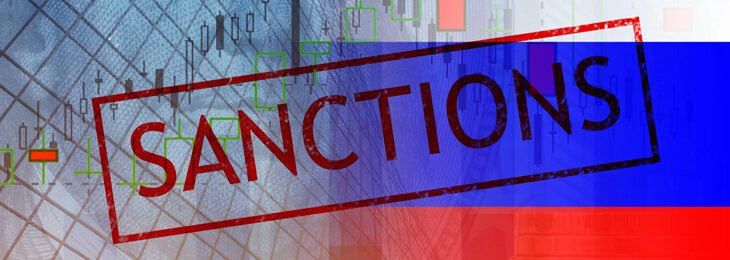
Former President Barack Obama made significant changes to U.S. economic sanctions over the past several years. Among the most high profile changes were the relaxing of the Cuba and Iran sanctions programs and the imposition of new sanctions against Russia. During speeches and public appearances during the campaign season and during the transition period following the election, Donald Trump promised to roll back or reverse many of these changes once in office. As many of the changes made under the Obama administration were implemented through executive order, they can be just as easily undone by the same mechanism. Predicting whether the new president will fulfill his campaign promises with respect to sanctions may be difficult, but many of his cabinet appointees have publicly taken strong views on sanctions issues, increasing the likelihood of further change.
Cuba
In 1959, Fidel Castro orchestrated a revolution, which led to the overthrow of the existing government and his seizure of power in Cuba. Castro quickly alienated the U.S. by embracing communism and increasing trade with the Soviet Union at the height of the Cold War, when U.S.-Russia relations were their most tenuous. In addition, the Castro government confiscated and nationalized U.S.-owned properties and increased taxes on American goods. The U.S. responded by reducing imports of Cuban sugar, ceasing the sale of petroleum to Cuba, banning exports to Cuba, and eventually imposing a full economic embargo that included strict restrictions for travel. In the following years, the Bay of Pigs invasion and the Cuban Missile Crisis created tremendous distrust between the two countries. These poor relations, coupled with the embargo and the travel ban, ensured that Cuban and American businesses, as well as their citizens, did not interact.
Even after the fall of the Soviet Union, U.S. lawmakers continued to impose restrictions on Cuba. In 1992, Congress passed (and former President George H. W. Bush signed into law) the Cuban Democracy Act, which placed restrictions on vessels that called on Cuban ports or carried Cuban nationals, prohibited foreign-based subsidiaries of U.S. companies from trading with Cuba, prohibited travel to Cuba by U.S. citizens and reduced permitted remittances to Cuba.1
Several years later, Congress passed (and former President Clinton signed into law) the Cuban Liberty and Democratic Solidarity (Libertad) Act of 1996,2 also referred to as the Helms-Burton Act. The Helms-Burton Act continued and strengthened the Cuban embargo. The Act codified the U.S. embargo by legislation, which was previously in effect pursuant to a presidential order by the Kennedy administration. This is significant in that unlike other sanctions regimes established by executive order or presidential authority, Congress must repeal the law for the embargo to be lifted. Alternatively, provisions of the Act allow for the self-termination of the embargo provided that Cuba meets several requirements established under the Helms-Burton Act, including establishing “free and fair elections.”
Obama Administration
Starting in 2014, through a series of executive orders, former President Obama relaxed some of the restrictions surrounding the Cuba sanctions. Specifically, the president made travel to Cuba easier (facilitating additional people-to-people contact), loosened financial restrictions involving U.S. banks, allowed for certain qualified U.S. persons to lease or own property in Cuba, created additional business opportunities between U.S. and Cuban firms through the easing of trade restrictions and allowed for telecommunications, infrastructure and humanitarian support in Cuba by the U.S.
In addition, while not sanctions or embargo related, several high profile actions further underscored the previous administration’s desire to normalize relations. For example, under former President Obama, the U.S. removed Cuba from its list of State Sponsors of Terrorism. In addition, each country resumed diplomatic relations by opening embassies in each other’s respective countries. Former President Obama also became the first sitting U.S. president to visit Cuba in 70 years, and in a symbolic gesture, allowed Major League Baseball to be played in Cuba.
Despite the actions undertaken since 2014, and as a result of the Cuban sanctions being rooted in legislative authority within the Helms–Burton Act, significant restrictions still apply with respect to Cuba for U.S. persons. This includes the ultimate prize for the Cuban economy—the inability for U.S. persons to travel to Cuba for leisure and tourist activities.
President Trump
Then-President-Elect Trump, shortly after Fidel Castro’s death in November, tweeted that “If Cuba is unwilling to make a better deal for the Cuban people, the Cuban/American people and the U.S. as a whole, I will terminate [the] deal.”3 In October, while campaigning, his stance was even more aggressive, telling a crowd in Miami that unless certain demands were met—such as the “freeing of political prisoners”—he would reverse any actions undertaken by the Obama administration.
High profile lawmakers from both parties, such as Republican Senator Marco Rubio and Democratic Senator Bob Menendez, have called for similar rollbacks unless certain human rights changes are implemented in Cuba by the Castro regime. Some have interpreted Senator Rubio’s intense questioning of then Secretary of State Nominee Rex Tillerson during confirmation hearings as extracting a commitment to reverse Cuban government appeasement. Furthermore, some Cuban-Americans (typically the older generations) were also critical of warming relations with Cuba, openly celebrating Castro’s passing in November 2016.
According to the Council on Foreign Relations, 75 percent of the 1.6 million Cuban-Americans currently live in Florida4. As Florida is a critical swing state in U.S. presidential elections and many Cuban-Americans have a strong interest in Cuban-American relations, the topic of Cuba-related sanctions will remain in the political forefront for the foreseeable future.
Iran
In 1979, the U.S.-backed Shah of Iran was overthrown by supporters of the Ayatollah Khomeini. Shortly thereafter, by national vote, Iran declared itself an Islamic Republic. Following several actions by the Iranian government, including the well-publicized U.S. embassy hostage situation, former President Carter sanctioned the government of Iran and the Central Bank of Iran in 1979, freezing billions in assets.5 Further sanctions were implemented by an executive order in 1987 banning Iranian imports as a result of aggressive behavior of the Iranian Navy in the Persian Gulf.6
Additional rounds of sanctions were imposed against Iran in the following years for human rights abuses, state sponsorship of terrorism and proliferation of weapons of mass destruction. These sanctions were issued in conjunction with the EU and the U.N., who imposed their own sanctions programs to punish Iran. The cumulative effect of all of these sanctions cut the Iranian economy off from much of the Western world.
Obama Administration
The Joint Comprehensive Plan of Action (JCPOA), a key foreign policy initiative of the Obama administration, is an agreement finalized in 2015 regarding the future of Iran’s nuclear program. The agreement was reached by and between Iran, the EU, and the “P5+1”—the five permanent members of the United Nations Security Council—China, France, Russia, U.K., U.S., plus Germany.
Under the JCPOA, Iran must reduce or eliminate its uranium reserves and also reduce its gas centrifuges. Iran agreed not to build certain new uranium enriching facilities for 15 years. The International Atomic Energy Agency is charged with monitoring Iran’s compliance with the JCPOA and Iran must allow full and open inspections. In exchange for these concessions, and allowing full inspections, the U.S., EU, and U.N.’s nuclear-related economic sanctions on Iran were eliminated. The nuclear-related (i.e., secondary sanctions) were originally designed to deter non-U.S. persons from engaging in transactional activity with Iran. As of Implementation Day, the majority of U.S. secondary sanctions were lifted.
Despite the U.S. participation in the JCPOA, significant U.S. sanctions (i.e., primary sanctions) remain in place (for the aforementioned human rights abuses, state sponsorship of terrorism and the proliferation of nuclear weapons). These primary sanctions prevent U.S. persons from transacting with Iran. While the JCPOA has opened the door for European trade, significant barriers remain in place for commerce between the U.S. and Iran. For example, the Iran Sanctions Act was renewed in December 2016 for another 10 years by the House and Senate, ensuring continuing sanctions on Iran for the foreseeable future.
President Trump
Prior to taking office, President Trump has been vocal about his dissatisfaction about the JCPOA. During one presidential debate, he said the Iran deal was the “stupidest of all time” and that “Iran should write us a letter of thank you.”
The JCPOA is not a treaty ratified by U.S. legislators nor is it embedded in any law. As a result, the JCPOA can easily be undone by presidential action. However, it is less clear if U.S. allies would withdraw from existing business opportunities should the U.S. decide to walk away. Many European businesses, some at the urging from their governments, have begun to explore business opportunities in Iran.
In addition, shortly into his presidency, as a result of ballistic missile testing by Iran, President Trump levied new sanctions against numerous Iranian linked companies (and others).7
Russia
In 2014, Russian forces entered and occupied the Crimea Region of Ukraine, an independent and autonomous country, eventually annexing the region through its military superiority. As a result of the Russian occupation and ensuing armed conflict in Crimea, the U.S. imposed sanctions through several presidential executive orders.8 These sanctions prohibited any U.S. involvement in the region, cutting off the area from any financial exportation by the U.S. or any U.S. person.
The U.S. sanctions also designated certain Russian companies and individuals as Specially Designated Nationals (SDNs), blocking their assets and making it illegal for U.S. businesses to engage with these companies. A new category of designation, Sectoral Sanctions Identification (SSI), was also created under these executive orders. U.S. persons are prohibited from engaging with SSIs on certain types of transactions, typically involving debt. The EU also imposed sanctions against Russia, banning commerce and designating certain individuals.
While these sanctions against Russia are far more limited than the sanctions against Cuba or Iran, it has prevented any U.S. involvement in the Crimea Region in an attempt to punish Russia for its occupation.
Obama Administration
Unlike the Cuban and Iranian sanctions, which were softening under the Obama administration, former President Obama attempted to increase leverage on Russia through economic sanctions. In December 2016, several Russian entities and individuals were designated as SDNs for cyber-related crimes, including accusations of tampering with the U.S. election process. In addition, 35 diplomats were asked to leave the country and two compounds used as living and office quarters were closed.
President Trump
President Trump has been less clear about his intentions with respect to Russian sanctions, though he has hinted at warming relations with Russia, stating the U.S. should “move on to bigger and better things."9 He has also declined to acknowledge apparent evidence of Russian involvement in the election-related hacking. On December 30, 2016, days after the latest sanctions were imposed on Russia and Putin declined to retaliate with sanctions or ejecting U.S. diplomats, Trump tweeted “Great move on delay (by V. Putin)—I always knew he was very smart!”10
In addition, the president’s selection for Secretary of State, Tillerson, the former CEO of Exxon, has extensive business ties with the petroleum industry in Russia. In 2013, Tillerson received the Order of Friendship award from Russia to acknowledge the positive impact of his business dealings with Rosneft, a state- owned oil company.11 A year later, Rosneft was designated as an SSI. It is assumed that Tillerson still has strong ties and good relations to Putin.
Conclusion
Based on the rhetoric presented during the campaign, President Trump has been very clear with his opinions about former President Obama’s use of economic sanctions. As it lies within his presidential authority to undo the changes in Cuban sanctions, to disassociate the U.S. with the JCPOA agreements, and to undo the sanctions related to Crimea and cyber-crimes by Russia, the question now is not can he, but will he?
The views expressed in this article are those of the author and do not represent the views or positions of his employer or ACAMS and its affiliates.
For more information on crucial sanctions compliance principles that all compliance staff should understand, please visit: http://www.acams.org/sanctions-compliance-training/.
- “Cuban Democracy Act,” https://web.archive.org/web/20041108140907/http:/www.treasury.gov/offices/enforcement/ofac/legal/statutes/cda.pdf
- “Cuban Liberty and Democratic Solidarity (Libertad) Act of 1996, http://cuba-embargo.procon.org/sourcefiles/1996-Cuban-Liberty-and-Democratic-Solidarity-Act.pdf
- https://twitter.com/realDonaldTrump/status/803237535178772481
- “Cuba,” Council on Foreign Relations, http://www.cfr.org/campaign2016/cuba
- “Blocking Iranian Government Property,” https://www.treasury.gov/resource-center/sanctions/Programs/Documents/Executive%20Order%2012170.pdf
- “Prohibiting Imports from Iran,” https://www.treasury.gov/resource-center/sanctions/Documents/12613.pdf
- “Treasury Sanctions Supporters of Iran’s Ballistic Missile Program and Iran’s Islamic Revolutionary Guard Corps—Qods Force,” U.S. Department of the Treasury, February 3, 2017, https://www.treasury.gov/press-center/press-releases/Pages/as0004.aspx
- “Executive Order 13685,” Federal Register, December 24, 2014, https://www.treasury.gov/resource-center/sanctions/Programs/Documents/ukraine_eo4.pdf
- Susan Stumme and Andrew Beatty, “Obama Hits Russia for Election Meddling,: Yahoo News, December 29, 2016, https://www.yahoo.com/news/us-expels-35-russian-intel-agents-over-vote-193213160.html
- “Vladimir Putin Invites American Kids to New Year’s Eve Party at Kremlin,” New Corp Australia Network, December 31, 2016, http://www.news.com.au/finance/work/leaders/vladimir-putin-invites-american-kids-to-new-years-eve-party-at-kremlin/news-story/88b573d7abf3664316913da94c0c1fe9
- “Meeting with Energy Company Heads,” President of Russian, June 21. 2013, http://en.kremlin.ru/events/president/news/18382










